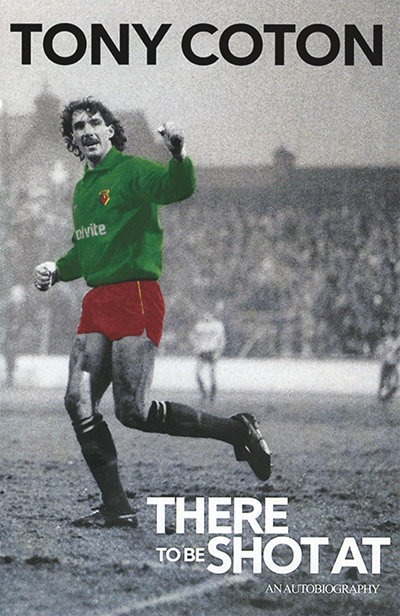
De Coubertin Books, £20
Reviewed by Chris Stride
From WSC 377, July/August 2018
Buy the book
Throughout this lively autobiography, former Birmingham City, Watford and Manchester City goalkeeper Tony Coton comes across as a straightforward, likeable character with a strong work ethic and sense of loyalty to family and friends – albeit a man you wouldn’t want to get on the wrong side of.
Early career shenanigans are covered in detail, and Blues fans will no doubt enjoy the tales of their mythologised early 1980s team, whose aggressive, borderline-psychotic approach on and off the pitch and surfeit of spiky characters provided an interesting finishing school for a youngster – one that contributes to a recurring theme of Coton’s story. We have brawls in venues as diverse as Birmingham taxi ranks, Watford hotels, Icelandic nightclubs and when filming Sky TV’s The Match, but his honesty around his inability to turn the other cheek – and the depression later experienced after a heart attack – is admirable.
After one too many incidents of pavement pugilism, Coton’s subsequent spell at Watford begins with a narrow escape from jail time, brokered by Graham Taylor’s gushing character witness that even Coton describes as “a performance Saul Goodman would have been proud of”. A chastened Coton reforms to the extent of turning down boozy nights out with Mo Johnston, and enjoys the happiest period of his playing career at Vicarage Road. Watford fans might be disappointed by the lack of reminiscing from this golden period, but there’s compensation in a tale of a bizarre but triumphant Chinese tour erratically managed by Elton John.
The footballer’s autobiography trope of score-settling is present and correct, though in thankfully small doses. A lack of international recognition, even after a move to Manchester City, clearly still rankles Coton, though England’s relative goalkeeping riches in this period made his earlier off-field indiscretions harder to ignore. A conspiracy theory for his lack of a full cap, involving City chairman and FA dignitary Peter Swales and a transfer add-on, is given full airing, but greater opprobrium is reserved for Swales’ successor at City, Francis Lee, who allegedly implied that Coton’s move to Manchester United was sought by the player rather than because City wanted the transfer income. Sunderland’s chairman Bob Murray is a more clear-cut villain after his failure to pay medical insurance bills leaves Coton having to sue the club following a career-ending injury.
However it is his later role as goalkeeping coach at Manchester United and then as a peripatetic scout that provide the most interesting chapters. Having promoted the signing of Tim Howard, Coton’s analysis of his protégé’s initial success and subsequent inconsistency offers the insight into the unique pressures and technical aspects of goalkeeping that is missing from the description of his own playing career. A brief sojourn in UAE is fascinating as much for Coton’s interactions with the local guest-workers as for the descriptions of midnight kick-offs and elite players winding down their careers.
Coton’s story concludes with some brief soul-searching following his heart problems, but as with the other more personal reflections dotted throughout, there’s a sense that as an archetypal strong silent type, he is much happier talking about his life in the context of football. This engaging book succeeds in doing that.